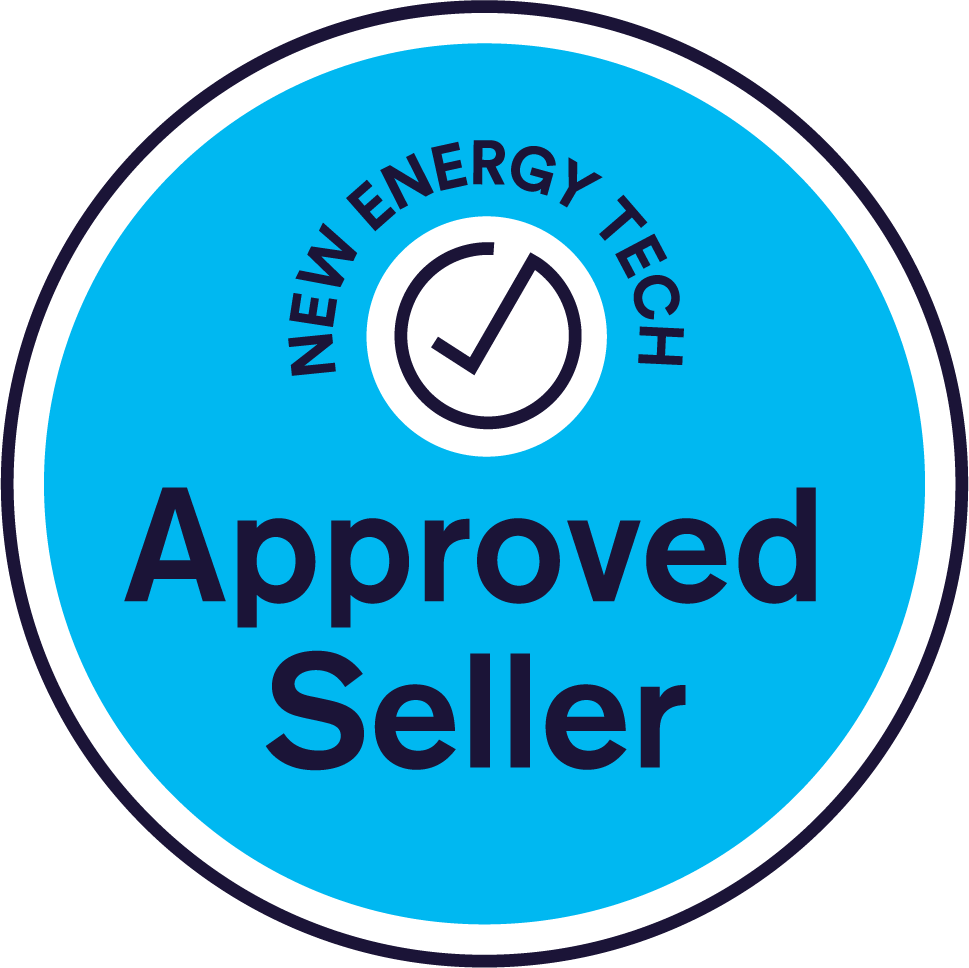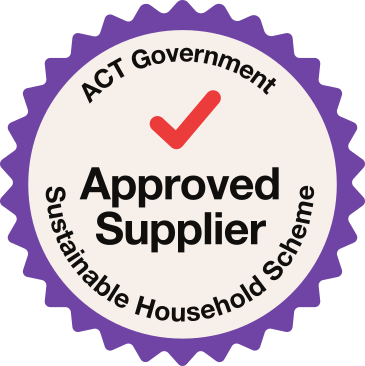This is an independent seraphim solar panels review and analysis by Ausgreen Solar Solutions. In the ever-evolving world of renewable energy, solar power stands out as a pivotal solution for reducing carbon footprints and achieving energy independence. Among the myriad of solar panel manufacturers, Seraphim Solar Panels have emerged as a noteworthy contender, known for their innovation, quality, and reliability. As the demand for solar energy systems continues to grow, understanding the nuances and performance metrics of different brands becomes crucial for consumers and businesses alike. This comprehensive Seraphim Solar Panels Review aims to delve deep into the various aspects that make these panels a popular choice in the solar market.
Seraphim Solar Panels Review
Table of Contents
- Introduction
- Company Overview
- Product Lineup
- Technological Innovations
- Efficiency and Performance
- Durability and Longevity
- Installation Process
- Warranty and Support
- Environmental Impact
- Cost Analysis
- Customer Reviews and Feedback
- Comparative Analysis with Competitors
- Industry Certifications and Standards
- Applications and Use Cases
- Case Studies
- Maintenance and Care
- Financial Incentives and Rebates
- Future Prospects and Innovations
- Common Issues and Troubleshooting
- Frequently Asked Questions (FAQs)
- Conclusion
1. Introduction
1.1 Background
Solar energy has become a pivotal part of the renewable energy sector. Among the various brands, Seraphim Solar Panels stand out due to their technological advancements and market presence.
1.2 Purpose of the Review
This review aims to provide an in-depth analysis of Seraphim Solar Panels, covering various aspects such as performance, durability, customer feedback, and more.
2. Company Overview
2.1 History
Founded in 2011, Seraphim Solar has rapidly grown to become a leading manufacturer of solar panels, known for their innovation and quality.
2.2 Mission and Vision
Seraphim aims to provide sustainable and efficient solar energy solutions worldwide, contributing to the global transition towards renewable energy.
2.3 Global Presence
Seraphim has a strong global presence with manufacturing facilities and offices in various countries, ensuring a wide reach and robust distribution network.
3. Product Lineup
3.1 Monocrystalline Panels
These panels are known for their high efficiency and sleek design, making them a popular choice for residential and commercial applications.
3.2 Polycrystalline Panels
Offering a cost-effective solution, polycrystalline panels are slightly less efficient but provide a good balance between performance and price.
3.3 Bifacial Panels
Bifacial panels can capture sunlight from both sides, increasing overall energy output, especially in installations where reflective surfaces are used.
3.4 Half-Cell Technology
Half-cell panels reduce resistive losses and improve performance, particularly in shaded conditions.
4. Technological Innovations
4.1 PERC Technology
Passivated Emitter Rear Cell (PERC) technology enhances efficiency by reflecting unabsorbed light back into the cell for a second chance at absorption.
4.2 Multi-Busbar Design
This design reduces electrical resistance and improves overall efficiency and performance.
4.3 Anti-PID Technology
Potential Induced Degradation (PID) can significantly reduce the lifespan of solar panels. Seraphim's anti-PID technology mitigates this issue, ensuring longevity and performance.
5. Efficiency and Performance
Seraphim Solar Panels are known for their exceptional efficiency. They convert sunlight into usable energy effectively. This section explores their high conversion rates and technological innovations.
5.1 High Conversion Rates
Seraphim Solar Panels boast high conversion rates. This means they turn more sunlight into electricity. Their advanced design helps achieve this. The panels use top-quality materials. These materials enhance their performance.
Below is a table showing the conversion rates of Seraphim Solar Panels:
Model | Conversion Rate (%) |
|---|---|
Seraphim Blade | 21.5 |
Seraphim Eclipse | 20.9 |
Seraphim Mono | 19.8 |
5.2 Technological Innovations
Seraphim Solar Panels integrate cutting-edge technological innovations. These innovations boost their efficiency. The panels feature PERC technology. This stands for Passivated Emitter and Rear Cell. PERC increases light capture.
Another innovation is half-cell technology. It improves energy output. The panels are also resistant to temperature changes. They perform well in various climates.
Advanced materials
PERC technology
Half-cell technology
Temperature resistance
These technologies make Seraphim Solar Panels a top choice. They ensure high efficiency and reliability.
6. Durability and Longevity
6.1 Build Quality
Seraphim uses high-quality materials and rigorous manufacturing processes to ensure the durability of their panels.
6.2 Weather Resistance
The panels are designed to withstand extreme weather conditions, including high winds, heavy snow, and hail.
Snow Load Capacity: The panels can support significant snow loads. This makes them suitable for snowy regions.
Corrosion Resistance: These panels resist corrosion. This ensures long-term efficiency and performance.
6.3 Degradation Rate
With a low annual degradation rate, Seraphim panels maintain their efficiency over a long period.
6.4 Longevity
Seraphim Solar Panels are built to last. They come with an extensive lifespan
High-Quality Materials: The panels use top-grade materials. This enhances their durability and longevity.
Performance Warranty: Seraphim offers a 25-year performance warranty. This indicates their confidence in the product's longevity.
Feature | Details |
|---|---|
Snow Load Capacity | Up to 5400 Pa |
Wind Load Capacity | Up to 2400 Pa |
Performance Warranty | 25 Years |
Investing in Seraphim Solar Panels ensures reliable and durable performance. They are designed to last for many years.
7. Installation Process
7.1 Pre-Installation Assessment
A thorough site assessment is essential to determine the optimal positioning and configuration of the panels.
7.2 Installation Procedure
Professional installation is recommended to ensure safety and maximize performance.
7.3 Post-Installation Checks
Post-installation checks are crucial to ensure the system is functioning correctly and efficiently.
8. Warranty and Support
8.1 Product Warranty
Seraphim offers a robust product warranty, typically covering 10-12 years.
8.2 Performance Warranty
A performance warranty usually guarantees 80-90% efficiency after 25 years.
8.3 Customer Support
Responsive customer support is available to address any issues or concerns.
9. Environmental Impact
9.1 Carbon Footprint
Solar panels have a significantly lower carbon footprint compared to fossil fuel energy sources.
9.2 Recycling and Disposal
Seraphim is committed to sustainable practices, including recycling programs for old panels.
9.3 Contribution to Renewable Energy Goals
Using Seraphim panels contributes to global renewable energy targets and reduces dependence on non-renewable resources.
10. Cost Analysis
10.1 Initial Investment
The initial cost of Seraphim panels is competitive, considering their high efficiency and advanced technology.
10.2 Return on Investment
High efficiency and durability ensure a good return on investment over the lifespan of the panels.
Most users see a return within 5-7 years. Here’s a breakdown of potential savings:
Initial Investment | Annual Savings | ROI Period |
|---|---|---|
$10,000 | $1,500 | 6.7 years |
$15,000 | $2,200 | 6.8 years |
These numbers show how quickly you can recover your costs. Once the ROI period is over, every saved dollar is pure profit.
10.3 Energy Bill Reductions
With Seraphim Solar Panels, energy bills drop significantly. This means more money in your pocket each month.
Here's how energy bill reductions look:
20-30% savings in the first year.
50% savings within three years.
Up to 80% savings after five years.
The panels harness sunlight to power your home or business. This reduces dependence on the grid and lowers monthly bills.
Consider how much you currently pay for electricity. Then, imagine cutting that bill by half or more. That’s the power of Seraphim Solar Panels.
10.4 Financing Options
Various financing options are available to make the adoption of solar energy more accessible.
11. Customer Reviews and Feedback
11.1 Positive Feedback
Many customers love their Seraphim Solar Panels. They praise their high efficiency and durability. Here are some common praises:
High energy output: Users see a big drop in electricity bills.
Durable: These panels can withstand harsh weather.
Affordable: Good value for the price.
Easy installation: Many find the setup process simple.
11.2 Criticisms
Some customers have complaints about Seraphim Solar Panels. Below are the most common issues:
Customer service: Some users report slow responses.
Installation: A few find the installation instructions unclear.
Maintenance: Some panels need frequent cleaning.
11.3 Overall Satisfaction
Overall, customer satisfaction is high, with many users recommending Seraphim panels for both residential and commercial use.
12. Comparative Analysis with Competitors
12.1 Efficiency Comparison
Seraphim panels compare favorably with other leading brands in terms of efficiency.
12.2 Cost Comparison
While slightly more expensive than some budget options, the quality and performance justify the price.
12.3 Technology Comparison
Seraphim's technological innovations, such as PERC and multi-busbar designs, place them ahead of many competitors.
13. Industry Certifications and Standards
13.1 ISO Certifications
Seraphim has multiple ISO certifications, ensuring quality and environmental management standards.
13.2 Industry Awards
The company has received several awards for innovation and quality in the solar industry.
13.3 Compliance with Standards
Seraphim panels comply with international standards, ensuring safety and performance.
14. Applications and Use Cases
14.1 Residential Use
Ideal for homeowners looking to reduce their energy bills and carbon footprint.
14.2 Commercial Use
Businesses can benefit from reduced operational costs and improved sustainability.
14.3 Utility-Scale Projects
Suitable for large-scale installations aimed at providing renewable energy to the grid.
15. Case Studies
15.1 Residential Case Study
A detailed look at a successful residential installation, highlighting cost savings and energy output.
15.2 Commercial Case Study
Analysis of a commercial project, showcasing the benefits and challenges of adopting Seraphim panels.
15.3 Utility-Scale Case Study
An in-depth review of a utility-scale project, including technical details and performance metrics.
16. Maintenance and Care
16.1 Regular Cleaning
Keeping the panels clean is essential for maintaining efficiency.
16.2 Inspections
Periodic inspections help identify and address any potential issues early.
16.3 Professional Maintenance Services
Professional services are available for more extensive maintenance needs.
17. Financial Incentives and Rebates
17.1 Government Incentives
Various government programs provide financial incentives for adopting solar energy.
17.2 Tax Credits
Tax credits can significantly reduce the overall cost of installation.
17.3 Rebates and Grants
Additional rebates and grants may be available, depending on location and project type.
18. Future Prospects and Innovations
18.1 Upcoming Technologies
Seraphim is continually investing in research and development to bring new technologies to market.
18.2 Market Expansion
Plans for expanding into new markets and increasing global reach.
18.3 Sustainability Goals
Commitment to sustainability and reducing the environmental impact of their products.
19. Common Issues and Troubleshooting
19.1 Performance Issues
How to identify and resolve common performance issues with Seraphim panels.
19.1.1 Understanding Seraphim Panel Performance
Before diving into troubleshooting, it's essential to establish a baseline for your Seraphim panels' performance.
- Monitor Energy Production: Use a solar inverter with monitoring capabilities to track daily, weekly, and monthly energy generation.
- Compare to Historical Data: Analyze performance trends to identify deviations from normal patterns.
- Consider Weather Conditions: Factor in weather conditions like cloud cover, rain, and temperature, as these significantly impact solar output.
19.1.2 Common Performance Issues and Solutions
1. Reduced Energy Output
- Soiling and Debris: Regularly clean panels to remove dirt, bird droppings, and other contaminants.
- Shading: Identify and address any obstructions blocking sunlight, such as trees, buildings, or equipment.
- Hot Spots: Inspect panels for hot spots, indicating potential cell damage. If found, consult a professional.
- Microcracks: Examine panels for hairline cracks, which can reduce efficiency. Consider panel replacement if extensive.
- Wiring and Connections: Check for loose or damaged connections in the solar array and inverter.
- Inverter Issues: Ensure the inverter is functioning optimally and there are no error messages.
2. Power Outages
- Inverter Malfunction: Check for inverter errors or malfunctions.
- Circuit Breaker Issues: Verify the circuit breaker controlling the solar system is not tripped.
- Grid Connection Problems: Ensure the grid connection is stable and there are no power fluctuations.
3. Performance Degradation
- Panel Aging: Solar panels naturally degrade over time. Monitor performance to assess if it's within expected ranges.
- PID (Potential Induced Degradation): If severe, consult a professional for potential mitigation measures.
- LID (Light Induced Degradation): Modern panels are less susceptible to LID, but it's worth considering if performance drops significantly early in the panel's life.
4. Hot Spots
- Immediate Action: Shade the affected panel to prevent further damage.
- Professional Inspection: Contact a qualified solar technician for diagnosis and repair.
- Preventive Measures: Ensure proper installation and ventilation to minimize hot spot risks.
5. Electrical Issues
- Ground Faults: Check for ground fault issues using a multimeter.
- Overcurrent Protection: Verify that circuit breakers and fuses are functioning correctly.
- Wiring and Connections: Inspect all electrical connections for tightness and damage.
Preventive Maintenance
Regular maintenance is crucial for optimal Seraphim panel performance.
- Visual Inspections: Conduct frequent visual inspections for damage, debris, or hotspots.
- Cleaning: Clean panels regularly, especially in dusty or polluted environments.
- Monitoring: Continuously monitor panel performance using inverter data.
- Professional Maintenance: Schedule regular maintenance checks by a qualified technician.
19.1.3 Seeking Professional Help
If you're unable to resolve performance issues independently, contact a Seraphim authorized installer or service provider. They have the expertise to diagnose and rectify problems effectively.
Important Note: Always prioritize safety when working on or around solar panels. If you're unsure about any procedures, consult a professional.
By following these guidelines and addressing potential issues promptly, you can maximize the performance and lifespan of your Seraphim solar panels.
Would you like to delve deeper into a specific issue or discuss preventive maintenance strategies in more detail?
19.2 Installation Problems
Common Installation Issues and Solutions
1. Roof Compatibility and Structural Integrity
- Roof Assessment: Conduct a thorough roof inspection to determine suitability for solar panel installation.
- Load Calculations: Accurately calculate the weight and load-bearing capacity of the roof.
- Flashing and Sealing: Use high-quality flashing and sealant to prevent water damage.
19.3 Warranty Claims
Guidance on how to make warranty claims and what to expect. Please contact us for more details
20. Frequently Asked Questions (FAQs)
20.1 What is the efficiency of Seraphim solar panels?
Seraphim solar panels typically have an efficiency rating exceeding 20%.
20.2 How long do Seraphim solar panels last?
With proper maintenance, Seraphim solar panels can last 25 years or more.
20.3 Are Seraphim solar panels suitable for residential use?
Yes, Seraphim panels are ideal for residential use due to their high efficiency and reliability.
20.4 What kind of warranty does Seraphim offer?
Seraphim offers a product warranty of 10-12 years and a performance warranty of 25 years.
20.5 How do Seraphim panels compare to other brands?
Seraphim panels are competitive in terms of efficiency, technology, and durability.
20.6 Can I install Seraphim solar panels myself?
Professional installation is recommended to ensure safety and optimal performance.
20.7 What maintenance do Seraphim solar panels require?
Regular cleaning and periodic inspections are recommended to maintain efficiency.



